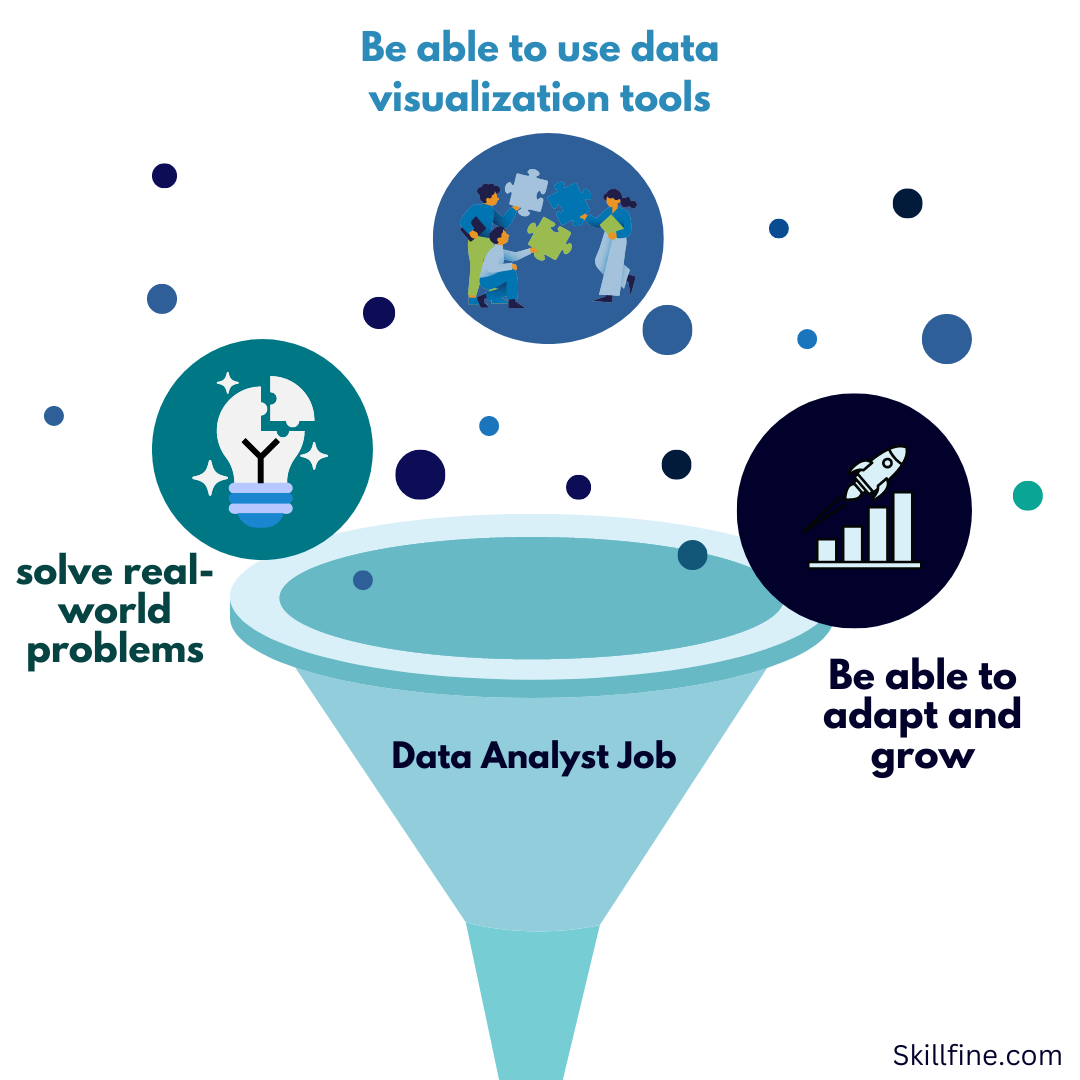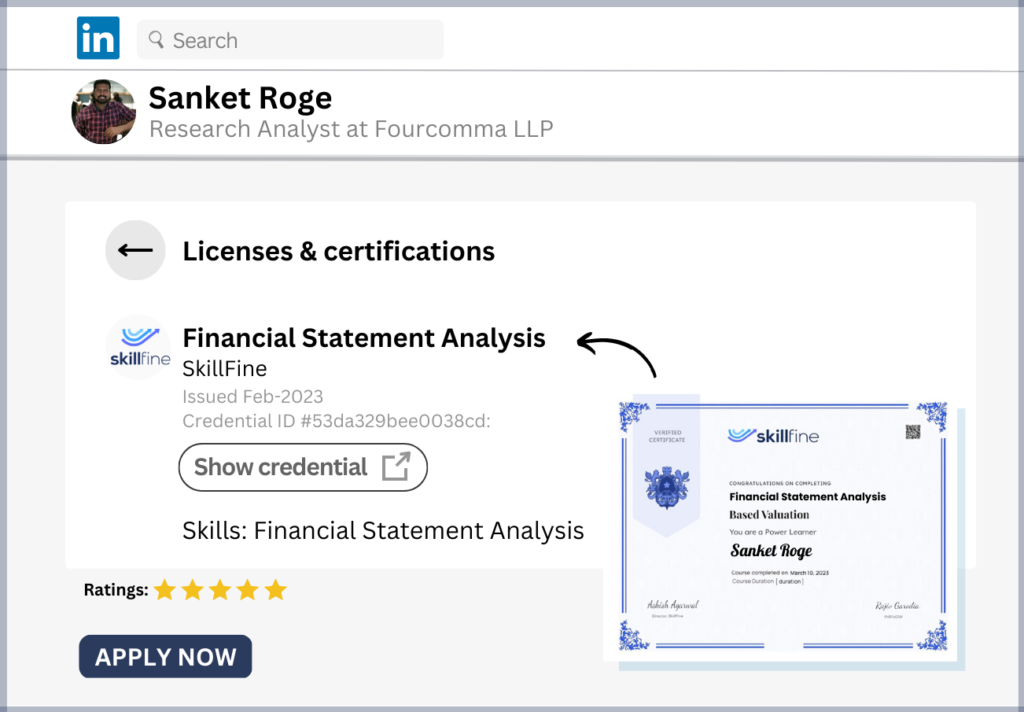If you’re a data analyst looking to land your dream job, then you already know how competitive the market can be. With so many qualified candidates vying for the same position, it can be tough to stand out from the crowd. That’s why it’s essential to prepare thoroughly for your interview, ensuring that you showcase your skills and experience in the best possible light.

In this ultimate guide, we’ll take you through the key steps to interview preparation, from researching the company and the role to practicing your answers to common questions. We’ll also cover the most critical technical skills you’ll need to demonstrate, including data analysis, statistical modeling, and data visualization. With our expert tips and advice, you’ll feel confident and well-prepared when it comes to interview day, increasing your chances of success and landing your dream job as a data analyst. So let’s dive in and get started!
Understanding the Role of a Data Analyst
Before you can prepare for your interview, it’s crucial to understand the role of a data analyst. As a data analyst, your primary responsibility will be to collect, process, and perform statistical analyses on large datasets. You will use this data to identify trends, patterns, and insights that can help inform business decisions and strategies.
To be successful as a data analyst, you’ll need to have a strong foundation in statistics, programming, and data visualization. You should also be comfortable working with large datasets and have experience using tools such as SQL, Python, and R.
In addition to technical skills, data analysts need to have excellent communication and problem-solving skills. You should be able to communicate complex data and insights to non-technical stakeholders in a way that is easy to understand. You should also be comfortable working independently and as part of a team.
Preparation for the Interview
Now that you have a better understanding of the role of a data analyst, it’s time to start preparing for your interview. The first step is to research the company and the role thoroughly. This will help you get a better sense of the company’s culture, values, and mission, as well as the specific requirements of the role you’re applying for.
You should also review the job description carefully, paying close attention to the required qualifications and skills. This will help you tailor your answers to the specific needs of the company and position.
Another important step in interview preparation is to practice your answers to common questions. This will help you feel more comfortable and confident during the interview and ensure that you’re able to showcase your skills and experience effectively.
Common Interview Questions for Data Analysts
During your interview, you can expect to be asked a variety of questions about your experience, skills, and qualifications. Here are some common data analyst interview questions you should be prepared to answer:
- What experience do you have with data analysis?
- What technical skills do you have, and how have you used them in your previous roles?
- How do you approach problem-solving?
- How do you ensure the accuracy and reliability of your data?
- How do you communicate complex data and insights to non-technical stakeholders?
Make sure you have specific examples and stories to illustrate your answers. This will help you stand out from other candidates and demonstrate your skills and experience effectively.
Behavioral Interview Questions for Data Analysts
In addition to technical questions, you may also be asked behavioral questions during your interview. These questions are designed to assess your soft skills, such as communication, teamwork, and problem-solving. Here are some examples of behavioral questions you might be asked:
- Describe a time when you had to work with a difficult team member. How did you handle the situation?
- Tell me about a time when you had to make a difficult decision based on incomplete or conflicting data.
- Describe a time when you had to communicate complex data to a non-technical stakeholder. How did you ensure they understood the information?
Again, make sure you have specific examples and stories to illustrate your answers. This will help you showcase your soft skills and demonstrate how you approach different situations.
Technical Interview Questions for Data Analysts
As a data analyst, you’ll also be expected to demonstrate your technical skills during the interview. This may include questions about statistical modeling, data visualization, and programming. Here are some examples of technical questions you might be asked:
- What statistical models have you used in your previous roles, and how have you applied them to solve business problems?
- What data visualization tools are you familiar with, and how have you used them to communicate insights to stakeholders?
- Can you walk me through your process for cleaning and processing data?
Make sure you’re comfortable with the specific tools and techniques required for the role you’re applying for. You should also be prepared to explain your thought process and decision-making when answering technical questions.
Tips for Answering Interview Questions
Regardless of the type of question you’re asked during the interview, there are some general tips you can follow to help you answer effectively. Here are some tips to keep in mind:
- Be concise and to the point. Avoid rambling or going off on tangents.
- Use specific examples and stories to illustrate your answers.
- Be honest about your strengths and weaknesses.
- Ask clarifying questions if you’re unsure about what the interviewer is asking.
Remember, the goal of the interview is to showcase your skills and experience effectively. By following these tips, you’ll be able to do just that.
Preparing for a Case Study Interview
In addition to traditional interview questions, you may also be asked to complete a case study during the interview. A case study is a simulation of a real-world business problem that you’ll be asked to solve using your data analysis skills.
To prepare for a case study interview, make sure you’re comfortable with the specific tools and techniques required for the role. You should also practice solving case studies on your own to get a better sense of what to expect.
During the case study, make sure you communicate your thought process and decision-making clearly. Don’t be afraid to ask clarifying questions or to take a few minutes to gather your thoughts before answering.
Research the company and position
When preparing for a data analyst interview, it is essential to research the following aspects of the company and the position:
- Company overview: Understand the company’s history, mission, values, products/services, and current market position. This information can be obtained from the company’s website or press releases.
- Industry trends: Research the latest trends, challenges, and opportunities in the industry in which the company operates. This will help you understand the context in which the company operates and how data analysis can contribute to its success.
- Job description: Thoroughly review the job description to gain an understanding of the specific requirements, responsibilities, and qualifications for the position. This will help you tailor your answers to the interviewer’s questions and demonstrate how your skills align with the job requirements.
- Company culture: Research the company’s culture, work environment, and values to determine if it aligns with your own professional goals and values. This information can be obtained from the company’s website, social media, or employee reviews.
- Data tools and technologies: Review the data tools and technologies that the company uses, such as SQL, Python, Tableau, or Excel. If you have experience with any of these tools, highlight it in your resume or during the interview.
- Competitors: Research the company’s top competitors and their data analytics strategies. This will help you understand the competitive landscape and provide insights into how the company can improve its data analysis processes.
Additional resources for interview preparation
- Online courses and certifications: Platforms like Coursera, Udemy, and edX offer various data analyst courses that can help in interview preparation. For example, “Data Analyst Nano-degree” on Udacity covers in-depth knowledge of data analysis, data wrangling, data visualization, and statistics.
- Books: Reading books related to data analysis, statistics, and machine learning can help in understanding the concepts better. Some recommended books include “Storytelling with Data” by Cole Nussbaumer Knaflic, “Data Science for Business” by Foster Provost and Tom Fawcett, and “Python for Data Analysis” by Wes McKinney.
- Online forums and communities: Joining communities like Kaggle, StackOverflow, and Reddit can be helpful in getting answers to interview questions and understanding different perspectives on data analysis problems.
- Practice problems: Practicing data analysis problems can help in increasing the speed and accuracy of solving problems. Websites like LeetCode, HackerRank, and GeeksforGeeks offer practice problems related to data analysis and statistics.
- Mock interviews: Conducting mock interviews with friends or colleagues can help in building confidence and identifying areas of improvement. There are also online platforms like Pramp and Gainlo that provide mock interview services.
- Company-specific resources: Researching the company’s website, annual reports, and job descriptions can help in understanding the company’s culture and requirements. Additionally, looking into company-specific data analysis problems and case studies can provide insights into the company’s data analysis approach.
The Importance of Soft Skills in Data Analysis
While technical skills are crucial for data analysts, soft skills are just as important. Soft skills include communication, teamwork, problem-solving, and time management. These skills are essential for working effectively with others and ensuring that your insights and recommendations are understood and acted upon.
During the interview, make sure you showcase your soft skills as well as your technical skills. Use specific examples to illustrate how you’ve demonstrated these skills in previous roles.
Follow-Up After the Interview
After the interview, it’s essential to follow up with a thank-you email or note. This will help you stand out from other candidates and demonstrate your interest in the role.
In your thank-you note, be sure to thank the interviewer for their time and reiterate your interest in the position. You can also include any additional information or examples that you forgot to mention during the interview.
Conclusion
Preparing for a data analyst interview can be a daunting task, but with the right preparation and practice, you can increase your chances of success. Make sure you research the company and the role thoroughly, practice your answers to common questions, and demonstrate both your technical and soft skills during the interview. By following these tips, you’ll be well on your way to landing your dream job as a data analyst. Good luck!
Some of the frequently asked questions include:
- What are the essential skills required to become a successful data analyst?
- How can you ensure that your resume stands out when applying for a data analyst position?
- What is the best way to prepare for a data analyst job interview?
- How can you showcase your problem-solving abilities during a data analyst interview?
- What are some common challenges faced by data analysts, and how can you overcome them?
You can read more on this on our LinkedIn page as well:


2 thoughts on “Data Analyst Dream Job: The Ultimate Guide to Interview Preparation”
[…] Data Analyst roles are on the rise, there are certain skills that are vital for anyone who wants to become a data analyst. Before the job, a candidate needs to have either a degree in statistics, business or computer […]
Belçika Medyum Hoca Aramalarınıza Son ? 40 Yıllık Uzmanlık Ve Tecrübesi İle Belçika Medyum Haluk Hoca Sizlere En İyi Medyum Hizmeti Veriyor